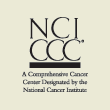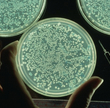



Over the past five years, Baylor has continued to be a leader in a applying the expertise and knowledge gained from the Human Genome Project, in which the College played a major role, to directly benefit patients. In 2011, Baylor researchers sequenced the genome of the Beery twins and not only identified the cause of their disease, but were also able to identify a new therapeutic approach that has helped them lead healthier, more active lives.



From the Labs

DLPC, a component of the commonly used supplement lecithin increases bile acid, increases sensitivity to insulin and reduces fatty liver in mice according to a study led by Baylor researchers and published in Nature. This work led to further research to see if DLPC would be helpful for patients with pre-diabetes.
The protein interaction network or interactome for autism spectrum disorders demonstrates the many paths converging at gene landmarks. Devised by researchers at Baylor College of Medicine, the Jan and Dan Duncan Neurological Research Institute at Texas Children's Hospital and colleagues, the interactome provides a new frame of reference for scientists investigating the puzzling world of autism. A report on the work appeared in a the journal Science Translational Medicine.

Researchers from Baylor and the University of Health Science Center at Houston proposed a framework to help develop new national patient safety goals that specifically address the needs of doctors' offices, clinics and hospitals that use electronic health records. They describe this proposal in an article in the New England Journal of Medicine.
Baylor researchers and colleagues identified a small molecule that inhibited the amount and quality of sperm produced by mice. The researchers reported their work in a paper in the journal Cell. Ongoing studies based on this work may lead to development of a male contraceptive.

After hearing from clinical colleagues about increasing problems with certain types of bacteria resistant to commonly used antibiotics, Baylor researchers identified an old drug previously used for fungal infections, that successfully fights these bacteria. The study was reported in PLOS One.
Recipients of stem cell transplants now have a new therapy to prevent viral infections thanks to research that was conducted at Baylor. A report on this therapy appeared in the journal Blood.


Learn more about Baylor research.

Discover
Discover the fundamentals of human health & disease.








